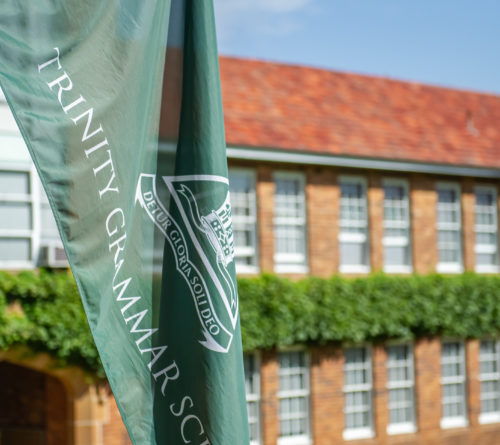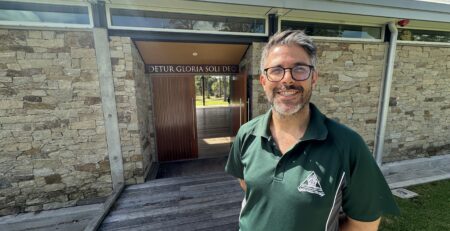Academic Focus
Academic Motivation and Engagement
It is not revolutionary to propose that the more ‘engaged’ a student is, the more academically successful he will be. Good teachers have always provided inviting learning landscapes and developed their students’ abilities to independently step into learning challenges and achieve learning growth.
Last week, I identified the four areas of academic growth the School looks to foster in all students:
- His capacity for deliberate engagement
- His skills to manage deep learning
- His disposition to embrace challenge
- His expanding repertoire of what he knows, understands and can do
This week, I’d like to focus on the first of these, a student’s growing capacity for deliberate engagement. At Trinity, we work with a clear theory of student motivation and engagement, and a well-developed structure for providing feedback, affirming strengths, improving, and celebrating student engagement. The School has grounded its understanding of motivation and engagement in the research of Dr Andrew Martin, positing motivation and engagement as a continuum of both positive and negative thoughts (motivation) and behaviours (engagement). The theory represents this continuum as the Motivation and Engagement Wheel.[1]
[1] Liem, G, and Martin, A., 2011, Australian Psychologist

Through the Life Skills programme, Semester Reporting and targeted conversation, the School supports students to develop positive factors and control negative factors. The message here is that motivation is not something extrinsic, or separate to, the student; nor is it a matter of chance or purely based in personal interest. Engagement is a deliberate choice because it is behavioural, and when students set goals to improve or deepen engagement behaviours, they take the first step to improved academic success. I would argue it is in fact pointless to set oneself the goal of improving grades in, say Mathematics, if one does not first address improvement in one’s behaviours in relation to Mathematics.
The other crucial aspect of this theory is that it shows there is a reciprocal relationship between motivation and engagement. That is, they affect each other in both directions. It is an easy excuse, for all of us, to say ‘I have no motivation for this area of learning, therefore, I cannot be engaged.’ Research standing behind the Motivation and Engagement Wheel suggests that we can, in fact, improve motivation by changing behaviour. If we start demonstrating the behaviours associated with positive engagement (being persistent, planning thoroughly, structuring time, setting goals, working collaboratively, acting on feedback) then our motivation will be positively impacted. This is not an easy choice to make, but it is a productive one.

There are specific engagement behaviours linked by Martin’s extensive research to academic success. Trinity articulates these engagement behaviours in the following way:
- Self management: working to positively regulate my emotion, identify the value of my learning opportunities and give my best
- Task management: planning to use my time and resources efficiently to get tasks done
- Learning focus: keeping my eyes on my personal growth in what I know, understand and can do instead of marks and comparisons to others
- Persistence: accepting (and ultimately seeking) challenges that are hard for me and trying different strategies to meet those challenges
Every semester, the formal Report provides feedback based on the observed regularity of these behaviours across all aspects of the Trinity curriculum: Sport, Co-curricular Activities, House Programme and each academic subject. The Semester Report aggregates this feedback to an Engagement Point Average (EPA) and, because we value it so highly, print it on the front cover of the Report.
Finally, the School celebrates academic engagement as well as academic grades. Students who receive high EPAs, or achieve significant growth in their EPA from one semester to the next, are acknowledged on a Quad Assembly and in the Head Master’s Bulletin, at the conclusion of every semester. At the Annual Prize Giving ceremony, the Head Master awards students in Years 7 to 10 with consistently high levels of engagement and those who have demonstrated impressive improvement in their engagement behaviours over the course of the year.
I encourage you to think about ways you might affirm your sons’ growing capacities for deliberate engagement, and ways into conversations that focus, in the first instance, on what your sons are doing rather than only how they are feeling about their learning in particular areas.
Deborah Williams | Academic Dean
















